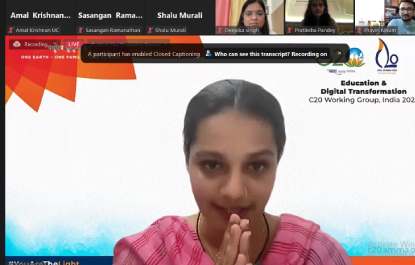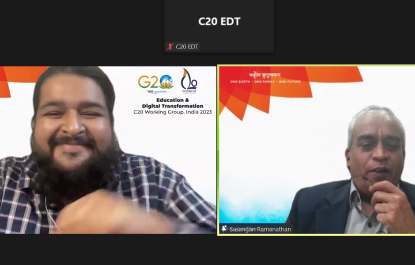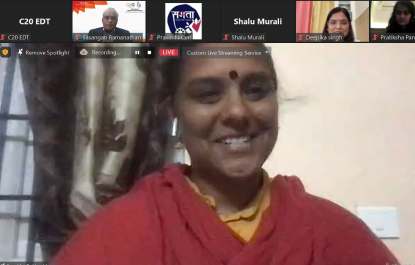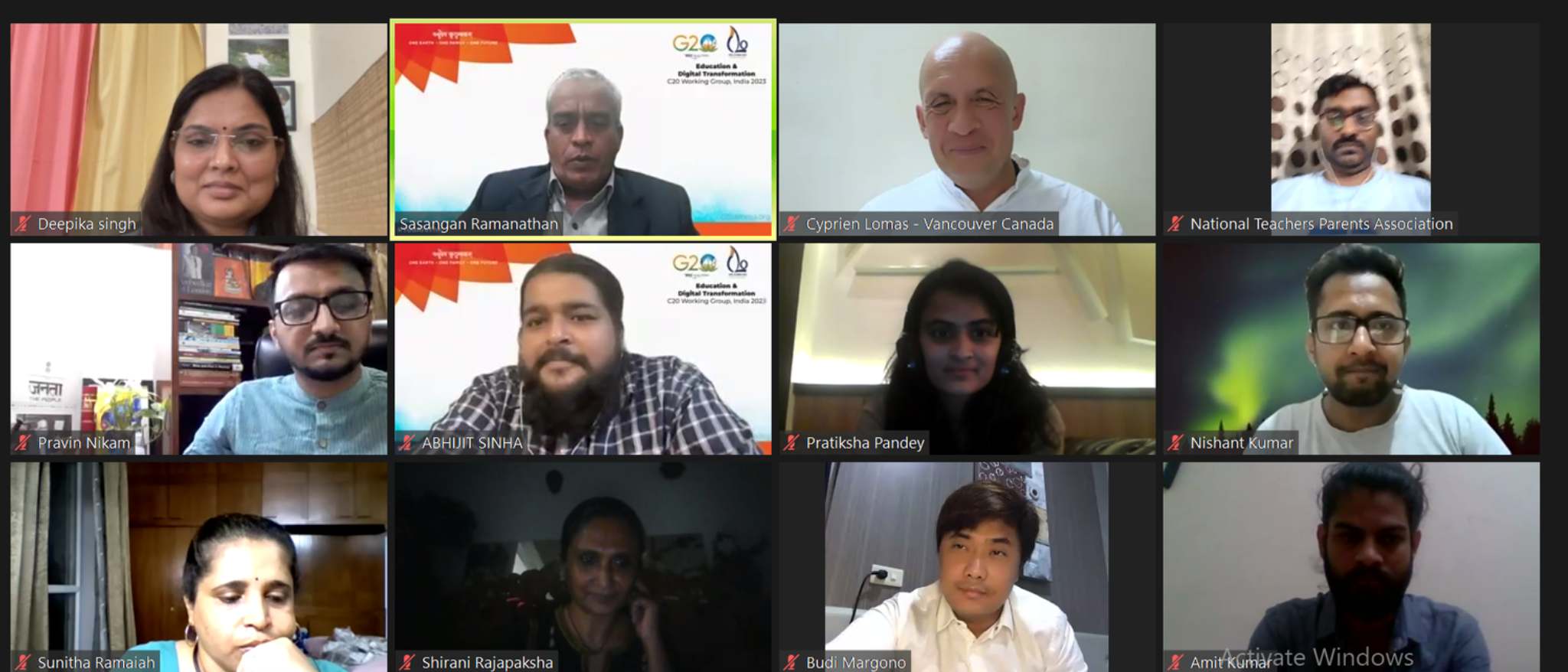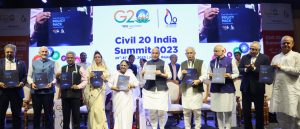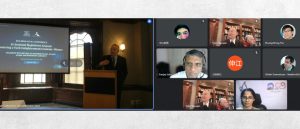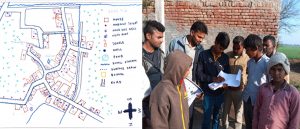The Civil 20 Education and Digital Transformation Working Group recently hosted a virtual Policy Dialogue on Learning Equity and Emerging Technologies. Eighty-four participants representing ten countries participated in the event.
C20 EDT Coordinator Dr. Prema Nedungadi, Director Amrita CREATE, and Chairperson, School of Computing, Amrita Vishwa Vidyapeetham, Amritapuri, said that technology is a powerful tool that can transform learning by making education equitable and accessible where it can be adapted to meet the needs of all learners.
The moderator, Dr. Sasangan Ramanathan, Dean, Engineering and Professor, Chemical Engineering and Materials Science, Amrita Vishwa Vidyapeetham, Coimbatore, explained that using technology-enhanced learning solutions and the technologies to enable access to quality education for all students and can support across contexts.
The eminent panelists included Mr. Abhijit Sinha, Founder – CEO, Project DEFY; Ms. Smrithi Rekha V, Founder, Anaadi Foundation; Ms. Pratiksha Pandey, CEO, Smart Cheli; Adv. Pravin Nikam, Founder and Educator, Samata Scholars; Dr. Deepika Singh, Associate Director, QUEST Alliance; Mr. Gurumurthy Kasinathan, Director in special consultative status with the United Nations ECOSOC, IT for Change; and Mr. Alimou Lembo, President, Global Humanist Association.
Advocate Pravin Nikam highlighted that emerging technologies could help achieve equity, but data protection for learners and educators of diverse backgrounds must be considered. He added that taking input from stakeholders from diverse backgrounds is imperative. However, he stressed that technologies must not further perpetuate inequalities.
Mr. Gurumurthy Kasinathan said, “Equity means reaching the unreached and their participation.” He said that everybody should benefit from a particular resource. He believes that technology should be publicly owned, publicly sourced, publicly invested, publicly controlled, and with public ownership. Acknowledging that collaboration of the public and private sectors in promoting technology along with licensing content and creativity is the only way to address learning equity.
Ms. Smrithi Rekha Adinarayanan said it is necessary to create a platform that supports STEM learning, frame policy for the safe use of the Internet, develop protocols to factor in emergencies that disrupt education and work on local language support for all digital tools.
Dr. Deepika Singh highlighted that systemic changes are required in the current teaching-learning model, emphasizing capacity building. According to her, appropriate technology and software adoption for different subjects and diverse learners are the need of the day.
Ms. Pratiksha Pandey shared that technology is helping bridge the gap in STEM education for young girls in Nepal, which governmental support. She added that technology integration in education could help young learners gain knowledge to understand real-time online violence, cybersecurity threat issues, and the use of technology for a safe future.
Mr. Abhijit Sinha pointed out that children must live happy lives and achieve their dreams. He stressed the importance of human-centered learning and not using technology as a replacement. He stressed the need to build in technologies and ideas imagining for the future is the real focus on creating an environment of equity learning, and we need to bring in this transformation.
Mr. Alimou Lembo thinks sustainable development goals and performance require efforts at all levels and must start with education alongside digital achievement. He added that emerging technology could transform education systems but stressed that technology must address educational needs during emergencies.
